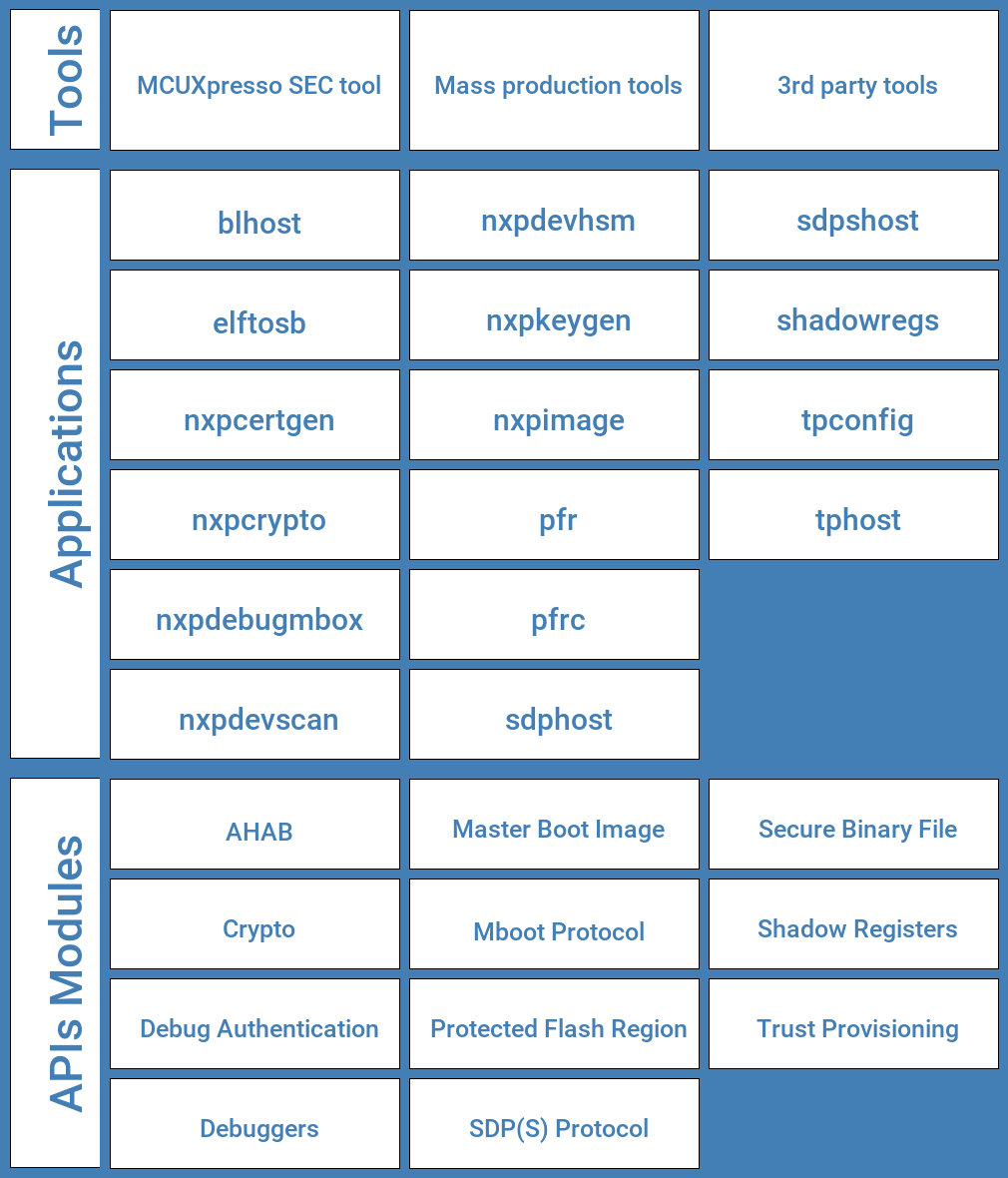Introduction
Secure Provisioning SDK (SPSDK) is a unified, reliable, and easy to use Python SDK library working across the NXP MCU portfolio providing a strong foundation from quick customer prototyping up to production deployment.
The library allows the user to connect and communicate with the device, configure the device, prepare, download, and upload data including security operations.
It is delivered in a form of:
Applications - applications which could be called from command-line using Python virtual environment,
APIs - functions in form of Python library.

Delivery
SPSDK is delivered to:
Organization
SPSDK is organized into modules:
Module name |
Description |
|---|---|
apps |
This module contains various applications delivered with SPSDK. |
crypto |
Module for crypto operations (certificate and key management). |
dat |
This module contains support for Debug Authentication Tool. |
debuggers |
Wrappers for various types of debuggers. |
image |
Module implementing functionality of srktool, dcdgen, mkimage and other similar tools. |
mboot |
Module implementing communication with the MCU Bootloader. |
pfr |
Module for working with Protected Flash Region. |
sbfile |
Module implementing SBFile. |
sdp |
Module implementing the SDP communication protocol. |
shadowregs |
This module contains support for Shadow Registers Tool. |
tp |
Trust provisioning. |
utils |
Module containing various functions/modules used throughout the SPSDK. |
Supported Devices
Supported OS
Windows 10, 64-bit
Ubuntu 18.04 or above, 64-bit
Mac OS 10.15 or above, x64, ARM64
Supported Environment
SPSDK is tested on Python 3.7+ interpreter, old version 2.x is not supported.
Versioning
In a given version spsdk x.y.z
xmajor version (currently locked to 1; think 0 in classic SemVer)yminor versionzpatch version
CLI/API stability notice
SPSDK is still in alpha (as noted in PyPI) and should be treated as such
Major releases are not planed in the foreseeable future
Minor release may break compatibility!!!
Patch release will not break backward compatibility (any occurrence is threated as a bug)
New features might be implemented in both patch and minor releases.